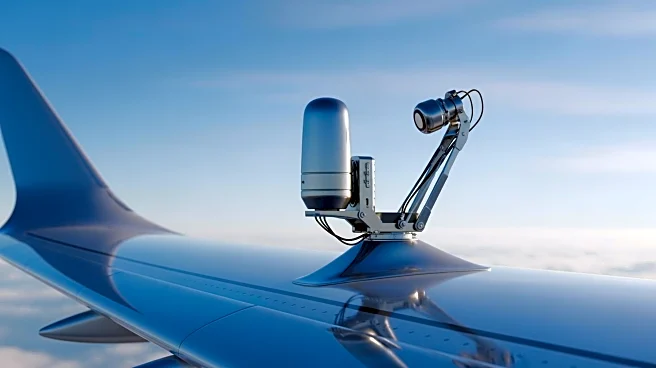What's Happening?
Lyft has announced a partnership with Google's Waymo to expand autonomous vehicle services to Nashville. This collaboration marks Waymo's first autonomous car service in the area, with Lyft responsible for fleet management, including vehicle maintenance and depot operations. Initially, customers will hail rides through Waymo's app, with plans to integrate the service into Lyft's app by 2026. Waymo currently operates over 2,000 autonomous taxis in five U.S. markets and plans to expand into six more, including Nashville. The partnership follows Waymo's previous small-scale pilot with Lyft in Phoenix and similar collaborations with Uber in other cities.
Why It's Important?
The partnership between Lyft and Waymo signifies a major step forward in the deployment of autonomous vehicle technology in the U.S. market. By expanding into Nashville, Waymo aims to increase its presence and offer innovative transportation solutions. This move is expected to boost Lyft's market position, as evidenced by the surge in its stock price following the announcement. The collaboration highlights the growing demand for self-driving cars and the potential for autonomous technology to reshape urban transportation, offering safer and more efficient travel options.
What's Next?
As Waymo and Lyft prepare for the Nashville expansion, they will focus on integrating autonomous technology into existing transportation networks. This includes developing infrastructure to support fleet operations and ensuring regulatory compliance. The partnership may prompt other cities to explore similar collaborations, potentially accelerating the adoption of autonomous vehicles nationwide. Stakeholders, including local governments and transportation agencies, will likely monitor the rollout closely to assess its impact on traffic patterns and public safety.
Beyond the Headlines
The expansion of autonomous vehicle services raises questions about the future of human labor in the transportation industry. As self-driving technology becomes more prevalent, there may be shifts in employment opportunities, requiring workers to adapt to new roles in fleet management and technology maintenance. Additionally, the integration of autonomous vehicles into urban environments will necessitate discussions on ethical considerations, such as data privacy and the safety of passengers and pedestrians.









